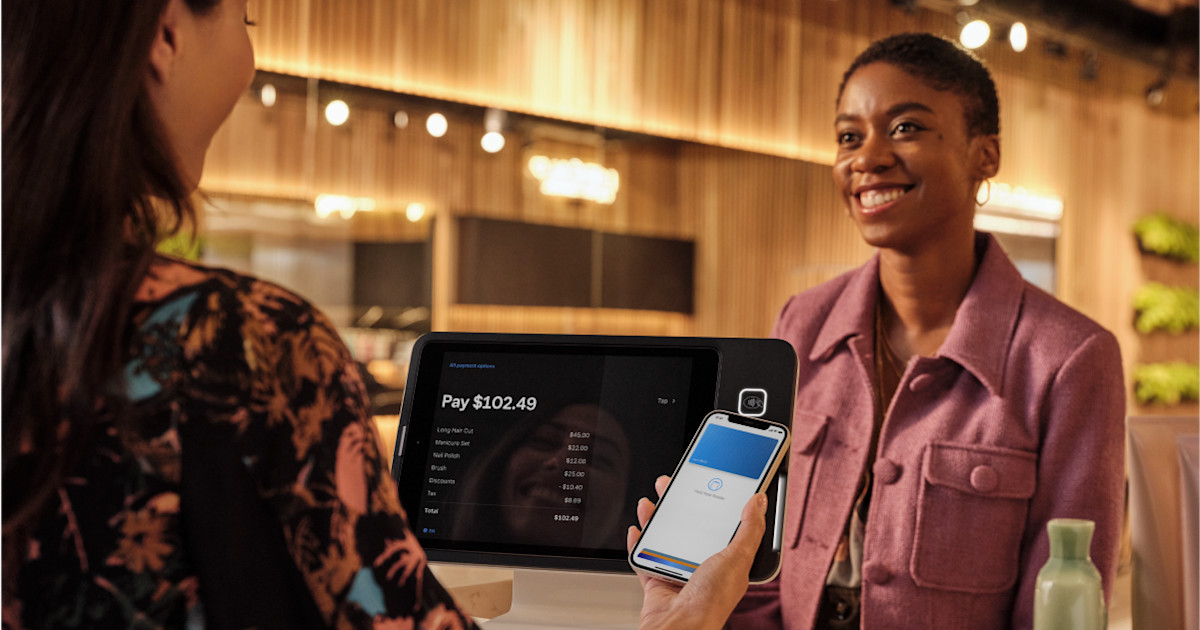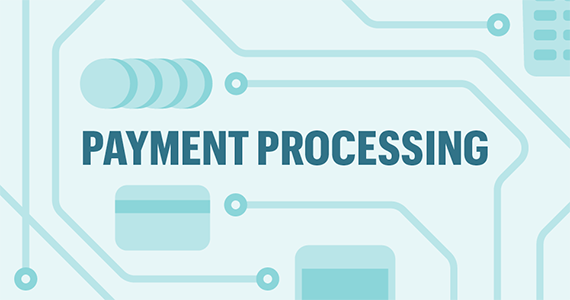The contemporary food service business relies on speed, efficiency, and customer satisfaction. Outside the kitchen and dining experience, perhaps the most important aspect of restaurant success is payment handling. From card payments and mobile payments to handling online orders and split bills, strong restaurant credit card processing & merchant services are needed to ensure a seamless and professional operation.

In this article, we will discuss all you need to know about restaurant payment solutions, such as types of restaurant payment processing, how to select the best merchant services for restaurants, and how to maximize your operations with the proper restaurant payment processor.
What Are Restaurant Merchant Services?
Restaurant merchant services are the set of financial tools and services that enable restaurants to accept and process different modes of payment credit cards, debit cards, mobile wallets, and even cryptocurrencies in certain situations. Restaurant merchant services are more than just the basic processing of transactions. They typically encompass:
- Point-of-sale (POS) systems
- Built-in payment gateways
- Equipment like terminals and mobile card readers
- Inventory tracking and employee management
- Analytics and reporting tools
Selecting the appropriate merchant services for restaurants involves selecting a provider that comprehends the distinctive challenges and possibilities in the hospitality industry.
Why Restaurant Payment Processing Matters?
High stakes are involved in the restaurant industry. A slow or unpredictable checkout process frustrates customers, slows down table turnover, and damages your brand’s reputation. Streamlined restaurant payment processing enhances your operational efficiency and customer experience. Here’s how:
- Faster Transactions: Quicker checkout means shorter wait times.
- Fewer Errors: Automated systems reduce the chances of billing mistakes.
- Better Customer Experience: Offering multiple payment options satisfies modern diners.
- Improved Tip Handling: Servers benefit from easier tip entry and adjustments.
- Simplified Accounting: Integration with financial systems streamlines bookkeeping.
Understanding Restaurant Payment Solutions
Restaurant payment solutions have numerous configurations. The best option will be based on your business model (dine-in, fast-casual, delivery-centric), number of transactions, and budget. Some of the key considerations are:
POS Systems with Embedded Payments
Most modern restaurant payment solutions start with a solid POS system that handles sales, inventory, and labor while working harmoniously with your payment processor.
Some popular examples are:
- Toast POS
- Square for Restaurants
- Lightspeed Restaurant
- Clover
These platforms offer software and hardware intended for restaurants’ specific purposes.
Integration of Online and Mobile Payments
With more and more business becoming digital, your restaurant payment processor should have the capability of taking online payments directly from your site or platforms such as Uber Eats, DoorDash, and Grubhub. Your integration should optimize order management.
Contactless and QR Code Payments
With the rise of contactless commerce, many restaurant credit card processing systems now support tap-to-pay and QR code options, offering hygienic and efficient ways to pay at the table.
Key Features of Restaurant Payment Processors
When comparing payment processing for restaurants, make sure the provider supports features tailored to your service model. Here are the top capabilities to look for:
- Tableside Payment Capability: This is particularly important for full-service restaurants. Handheld terminals enable servers to take the checkout process to the table, boosting tips and enhancing table turn.
- Tip Management Tools: An adaptable restaurant payment processing system enables pre-tip and post-tip entry, prompting gratuity without resistance from customer or staff.
- Multi-location Support: Chain restaurants or franchises must have their restaurant merchant services offer enterprise-level support for managing a plurality of venues with centralized management.
- Offline Mode: Internet outages can seriously interrupt service. Leading restaurant payment solutions have an offline capability so you can keep taking payments in the event of connectivity loss.
- Customizable Receipts: Branded receipts add a professional touch and can include survey links, coupons, or offers.
Selecting the Right Merchant Services for Restaurants

The task is not merely finding a restaurant payment processor, but the right one. Your selection should be based on the following factors:
- Transparent Pricing: Avoid surprise charges. Know if the provider provides: Interchange-plus pricing (open), Flat-rate pricing (simple), Tiered pricing (typically higher in total) Some of the best restaurant credit card processor options include detailed monthly statements and no contracts.
- Hardware Choices: Do they supply stylish, tough terminals? Does the equipment survive spills, grease, or incessant moving around? You want hardware as tough as your cooks.
- PCI Compliance: Your restaurant credit card processing needs to be PCI DSS compliant to prevent fines and the loss of sensitive information.
- Integration Capabilities: Does it integrate with your reservation system, loyalty program, or inventory software? The best restaurant merchant services are easy to integrate between platforms.
Comparing the Best Restaurant Payment Processors
Let’s take a look at some of the top restaurant payment solutions providers in the industry by reliability, features, and value.
Toast POS
Built specifically for the restaurant industry, Toast provides:
- Tableside ordering
- Online delivery integrations
- Custom loyalty and gift card programs
- Food-quality restaurant credit card processing
Toast utilizes proprietary hardware and charges subscription-based pricing.
Square for Restaurants
Ideal for quick-service or small restaurants. Square offers:
- Free software tier
- Tipping and discount capabilities built-in
- Online store builder
- Hardware bundles at a very affordable price
Subscriptions’ straightforward pricing model makes it one of the best restaurant credit card processor in ease of use.
Clover
Known for flexibility and modularity. Clover offers:
- Custom POS terminals
- Kitchen printer support
- Advanced inventory tracking
- Staff scheduling and payroll
Clover’s popularity in credit card processing restaurants is due to its scalable pricing and functionality.
Lightspeed Restaurant
Geared toward mid-sized to upscale restaurants, Lightspeed provides:
- Reservation system integrations
- Analytics dashboards
- Tableside ordering with iPads
- In-depth restaurant payment processing tools
Credit Card Processing Restaurants: Costs to Expect

When comparing credit card processing restaurant options, be aware of all potential fees, such as:
- Transaction fees: Percentage per transaction (usually 1.5%–3.5% + small fixed amount)
- Monthly fees: For POS software, gateway access, and PCI compliance
- Chargeback fees: Imposted on a customer if they dispute a transaction
- Setup or hardware charges: One-time or lease-only Knowing the cost structure aids you in choosing the optimal merchant services for restaurants depending on your transaction volume and customer behavior.
Online Ordering & Takeout Payment Integration
The pandemic irreversibly shifted the restaurant business towards higher demand for online ordering. Your restaurant payment processor must:
- Process payments through website or app
- Provide SMS/email receipts
- Integrate online orders with your POS
- Handle curbside pickup and delivery payments
Such omnichannel payment processing for restaurants helps your brand provide a cohesive experience in-store and online.
Customer Experience Boost From New Payment Features
In order to meet expectations, restaurant merchant services must also provide:
- Loyalty programs: Automatically reward repeat customers
- Gift cards: Sell, redeem, and monitor branded custom cards
- Mobile wallet acceptance: Apple Pay, Google Pay, Samsung Pay
- Split billing and tip sharing: Imperative to the group dining experience. All these add to cultivating customer loyalty and driving repeat visits something possibly not available in simple credit card processing restaurant platforms.
Security of Restaurant Payment Processing
Security will be of highest concern. Imperative to the discussion will be:
- End-to-end encryption
- Tokenization of card data
- EMV chip card support
- Two-factor authentication for system users
Select a restaurant payment processor that extends beyond compliance to keep your guests’ payment information safe.
Making the Final Decision
Here’s a checklist to assist you in making your decision for restaurant payment solutions:
- Accepts all payment types
- Provides tableside and online payment capabilities
- Clear and competitive fees
- Robust integration with your POS and online ordering
- 24/7 customer support
- Mobile and contactless payment support
- PCI and EMV compliant
- Service reputation within the restaurant space
If your existing provider does not tick all these boxes, it’s time to look elsewhere for restaurant merchant services.
Conclusion
In today’s competitive and fast-paced hospitality environment, your restaurant payment processing system needs to do more than simply process transactions it needs to enable your business. From inventory and employee management to effortless customer interactions and advanced security, the proper restaurant payment processor can become the backbone of your restaurant’s financial ecosystem. Whether upgrading old equipment or opening a new restaurant concept, the time to invest in top merchant services for restaurants that have innovation, support, and flexibility is now. When researching providers of credit card processing for restaurants, select those that see your business’s needs, offer clear pricing, and offer complete restaurant payment solutions that grow as you grow.
FAQs
What are restaurant merchant services?
Restaurant merchant services refer to an array of financial instruments used by restaurants to receive and make payments from clients. Restaurant merchant services normally entail credit card processing, point-of-sale (POS) software, payment gateways, support for mobile payments, and back-office solutions such as reporting and analysis.
Why is payment processing essential to restaurants?
Effective restaurant payment processing allows for quick and secure transactions, improved customer satisfaction, and efficient operations. It also enables restaurants to handle tips, split bills, and accept numerous forms of payments such as contactless and online payments.
What is the best credit card processor for restaurants?
The top restaurant processors are best suited to your needs, including those for transaction volume, desired hardware, and integration with existing systems. Top choices are Toast, Square for Restaurants, Clover, and Lightspeed all of which provide customized restaurant payment solutions.
How much does restaurant credit card processing cost?
Restaurant credit card transaction fees typically run between 1.5% and 3.5% per transaction, plus a per-transaction fee. Some restaurant merchant services additionally charge monthly charges, hardware rental charges, and PCI compliance fees. It pays to know your provider’s cost model whether flat-rate, interchange-plus, or tiered.
Can I utilize the same payment processor for online and in-store orders?
Yes, most restaurant payment processing today provide omnichannel processing, meaning you can process in-house, takeout, delivery, and online payments through the same system. Seamless operation requires POS and online ordering system integration.
How is restaurant payment processing different from traditional credit card processing?
Both permit card payments, but restaurant payment processing generally has industry-specific features including:
- Tableside ordering and payments
- Tip adjustment options
- Menu and inventory management
- Reservation and loyalty program integration
These capabilities extend beyond standard credit card processing restaurants configurations.
Do I need specialized restaurant payment processing hardware?
The majority of restaurant payment processing come with or suggest POS terminals, receipt printers, kitchen display systems (KDS), and handheld devices for tableside payment. There are some providers that provide all-in-one solutions, while others provide third-party hardware integration support.
Are restaurant merchant services secure?
Yes legitimate restaurant merchant services are PCI compliant and provide data encryption, tokenization, and fraud prevention capabilities. Always check that your provider is using the current security practices for processing sensitive customer information.
How do I select the best merchant services for restaurants?
To select the best merchant services for restaurants, look at:
- Clear pricing
- Compatibility with your current POS and accounting software
- Availability of customer support
- Future growth scalability
- Advanced features for restaurants such as tipping and split bills
- Ask for a demo and compare a few providers before you make your choice.
Do I have the ability to change my restaurant payment processors with ease?
Yes, but do:
- Check your existing contract for any termination fees
- Check that your new restaurant payment processing has all the features required
- Back up your data and verify a seamless migration plan
- Most providers provide onboarding help and hardware setup support.
